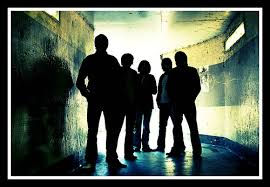Modern slavery and drugs: the truth about county lines gangs.
- Nick@LRC

- Mar 27, 2019
- 3 min read
Updated: Mar 28, 2019

By Tom Chadwick
VULNERABLE teenagers are being trafficked to South Wales to deal crack and heroin according to a top South Wales detective.
Commonly known as county lines gangs, teenagers are being shipped from larger UK cities such as London, Birmingham and Liverpool to deal drugs on behalf of large criminal organisations, with a belief that the children will be treated more leniently should they come before the courts.
Speaking to the BBC in January this year, South Wales Police Det Insp Stuart Johnson told how the force was regularly dealing with children as young as 13 in Swansea and Neath Port Talbot, which featured in the top 10 for heroin deaths in England and Wales. He noted that the teen dealers were more likely to get a lenient sentence due to their age and are seen as a “disposable commodity” to those further up the chain.
In the first County Lines-related child trafficking conviction in Wales earlier this year, a 15 year old orphan was forced to leave London and driven 200 miles to Swansea where he was forced to live in a ‘crack den’ and carry out drug deals across the city.
Gang member and convicted child rapist Jerome Tarek Wallis took the child from his home before driving him to the Welsh city, telling him “if he did not, he would come looking for him.”
Eventually, the child, who cannot be named for legal reasons, escaped while Wallis left him alone and went to Swansea Police Station, with officers praising his bravery.
Two men were sentenced for their part in the sophisticated operation earlier this year. Wallis, 20, of Southwark, was sentenced to 8 years in a young offenders institution after pleading guilty to supplying class A drugs and offences under the modern slavery act.
His accomplice Savion Glenroy Browne, of Lewisham, was convicted of supplying class A drugs at trial and sentenced to 6 years. Judge Keith Thomas said: “This was a professionally run operation with a substantial turnover of drugs and money.” The victim was told by Wallis, that he “had no choice” in the matter.
According to reports from leading youth charity Safer London, around 4,000 teenagers are trafficked from London every year to sell drugs in rural towns and cities every year. In a practice known as ‘cuckooing’ gangs often take over the house of a vulnerable drug user, setting it up as a base for drug dealing and potential accommodation for the trafficked child.
Teenagers who have been exploited in this way talked of threats of violence and coercion when they tried to leave the gang. One youth who spoke to Safer London tried to break away from the gang, with his parents even confiscating his mobile phone in a desperate effort to curb his increasingly long absences. But, he says, as soon as he left his house, the gang would spot him, pick him up and drive him to a house where they ran a kind of breakfast club before school. After school they would be waiting for him to drive him back to the house again.
Cases of modern slavery involving UK minors surged from 676 in 2017 to 1421 in 2018 National Crime Agency (NCA) data revealed, with county lines gangs accounting for a significant proportion.
Around 1500 county lines networks operate across Britain with every police force in the UK affected. Children are often targeted from the most disadvantaged households. Roy Mccomb, deputy director of the NCA said the increase in referrals made for county lines-type exploitation was of “particular concern”. He urged the public to be vigilant and report anything they deemed suspicious.
The latest information comes after MPs heard from a prominent youth worker last week how children as young as eight were being targeted because they were “easier to manipulate”. It emerged earlier this year that the Home Office has decided to cut specialised one to one support for children identified as victims of exploitation.



Comments